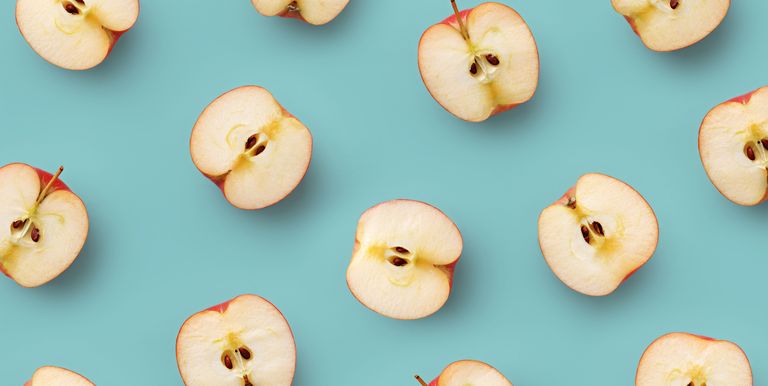
Τα προβιοτικά, τα ζωντανά βακτήρια που υπάρχουν σε τροφές όπως
το γιαούρτι, το κεφίρ και τα τουρσιά, είναι σημαντικά για την
υγεία του εντέρου.
το γιαούρτι, το κεφίρ και τα τουρσιά, είναι σημαντικά για την
υγεία του εντέρου.
Η ικανότητα όμως των προβιοτικών να ενισχύουν τα βακτήρια του εντέρου είναι προσωρινή, καθώς αποβάλλονται από τον οργανισμό μετά την πέψη
της τροφής.
της τροφής.
Σε αντίθεση με ότι πιστεύουν οι περισσότεροι, τα προβιοτικά δεν αλλάζουν
το μικροβίωμα του εντέρου, απλώς το τροποποιούν για ένα σύντομο χρονικό διάστημα.
Στο σημείο αυτό έρχονται τα πρεβιοτικά, τα οποία σε αντίθεση με τα
προβιοτικά, προσφέρουν μακροχρόνια θρέψη στο έντερο.
Μάλιστα τα πρεβιοτικά, τα οποία είναι πολλά και διαφορετικά, βρίσκονται σε πολλές τροφές. Κάθε πρεβιοτικό ενισχύει διαφορετικό είδος βακτηρίων, οπότε όσο περισσότερους τύπους πρεβιοτικών τρώτε, τόσο περισσότερο αυξάνονται τα καλά βακτήρια του εντέρου.
Συνδυάστε τα πρΕβιοτικά σας με πρΟβιοτικές τροφές ή συμπληρώματα για να έχετε καλύτερα αποτελέσματα
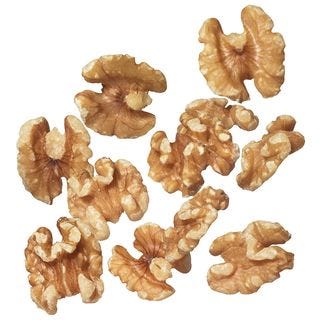
Walnuts
Walnuts contain fiber and other prebiotic compounds that support the growth of healthy gut bacteria. “Eating walnuts helps you to grow more lactobacillus, which helps crowd out bad gut bacteria and helps good ones grow," says Ansel. And a small 2018 study found that people who ate about a half a cup of walnuts every day for three weeks increased the number of butyrate-producing gut bacteria (a fatty acid that reduces inflammation for a healthier colon).
*Per 1-ounce serving (14 walnut halves): 185 cal, 19 g fat (2 g sat), 4 g carbs, 1 g sugar, 1 mg sodium, 2 g fiber, 4 g protein
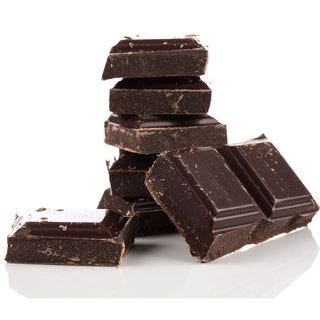
Dark chocolate
“This one is always a big surprise," says Ansel. Turns out, dark chocolate is an excellent source of polyphenols, prebiotic antioxidant compounds that help increase two types of gut bacteria (lactobacillus and bifidobacteria) that keep you regular.
Ansel suggests adding a scoop of pure cocoa powder and a splash of low-fat milk to your morning coffee for a DIY mocha. If you go for solid chocolate, most experts suggest choosing a plain dark bar with at least 70 percent cacao (to avoid excess sugar).
το μικροβίωμα του εντέρου, απλώς το τροποποιούν για ένα σύντομο χρονικό διάστημα.
Στο σημείο αυτό έρχονται τα πρεβιοτικά, τα οποία σε αντίθεση με τα
προβιοτικά, προσφέρουν μακροχρόνια θρέψη στο έντερο.
Μάλιστα τα πρεβιοτικά, τα οποία είναι πολλά και διαφορετικά, βρίσκονται σε πολλές τροφές. Κάθε πρεβιοτικό ενισχύει διαφορετικό είδος βακτηρίων, οπότε όσο περισσότερους τύπους πρεβιοτικών τρώτε, τόσο περισσότερο αυξάνονται τα καλά βακτήρια του εντέρου.
Συνδυάστε τα πρΕβιοτικά σας με πρΟβιοτικές τροφές ή συμπληρώματα για να έχετε καλύτερα αποτελέσματα

Walnuts
Walnuts contain fiber and other prebiotic compounds that support the growth of healthy gut bacteria. “Eating walnuts helps you to grow more lactobacillus, which helps crowd out bad gut bacteria and helps good ones grow," says Ansel. And a small 2018 study found that people who ate about a half a cup of walnuts every day for three weeks increased the number of butyrate-producing gut bacteria (a fatty acid that reduces inflammation for a healthier colon).
*Per 1-ounce serving (14 walnut halves): 185 cal, 19 g fat (2 g sat), 4 g carbs, 1 g sugar, 1 mg sodium, 2 g fiber, 4 g protein

Dark chocolate
“This one is always a big surprise," says Ansel. Turns out, dark chocolate is an excellent source of polyphenols, prebiotic antioxidant compounds that help increase two types of gut bacteria (lactobacillus and bifidobacteria) that keep you regular.
Ansel suggests adding a scoop of pure cocoa powder and a splash of low-fat milk to your morning coffee for a DIY mocha. If you go for solid chocolate, most experts suggest choosing a plain dark bar with at least 70 percent cacao (to avoid excess sugar).
*Per 1-ounce serving of dark chocolate: 170 cal, 12 g fat (7 g sat), 13 g carbs, 7 g sugar, 6 mg sodium, 3 g fiber, 2 g protein
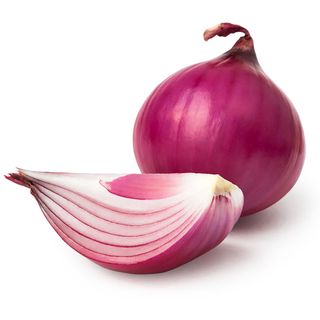
Onions
Onions are a great natural source of the prebiotic inulin, which helps your body produce colon-protecting butyrate and may also enhance heart health by lowering bad LDL cholesterol and triglycerides (fats in your blood). They also contain the phytonutrient quercetin, which Ansel says may help prevent cancer.
*Per cup of chopped onions: 64 cal, 0.2 g fat (0.07 g sat), 15 g carbs, 7 g sugar, 2 mg sodium, 3 g fiber, 2 g protein
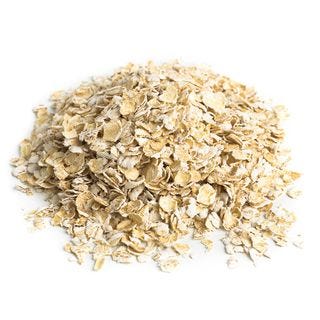
Oats
Oats are a huge source of resistant starch—a prebiotic type of starch your body can’t break down. It travels intact to your large intestine, where bacteria feast on it and ferment it, producing compounds that have a laxative effect to keep your colon healthy and protected from cancer, explains Ansel. What’s more, resistant starch may even help lower your blood sugar and cholesterol.
Oats are a huge source of resistant starch—a prebiotic type of starch your body can’t break down. It travels intact to your large intestine, where bacteria feast on it and ferment it, producing compounds that have a laxative effect to keep your colon healthy and protected from cancer, explains Ansel. What’s more, resistant starch may even help lower your blood sugar and cholesterol.
*Per half-cup of dry oats: 153 cal, 3 g fat (0.5 g sat), 27 g carbs, 0.4 g sugar, 2 mg sodium, 4 g fiber, 5 g protein
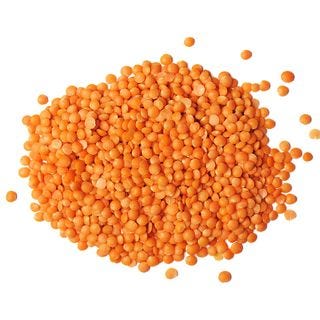
Red lentils
Red lentils serve up a double-whammy of resistant starch and soluble fiber to help sweep cholesterol from your body. Bonus: They cook faster than any other type of lentils, taking just 15 minutes. For a quick meal, mix cooked lentils with curry powder and top with a generous serving of nonfat plain Greek yogurt.
Red lentils serve up a double-whammy of resistant starch and soluble fiber to help sweep cholesterol from your body. Bonus: They cook faster than any other type of lentils, taking just 15 minutes. For a quick meal, mix cooked lentils with curry powder and top with a generous serving of nonfat plain Greek yogurt.
*Per half-cup of cooked lentils: 115 cal, 0.4 g fat (0 g sat), 20 g carbs, 2 g sugar, 2 mg sodium, 8 g fiber, 9 g protein
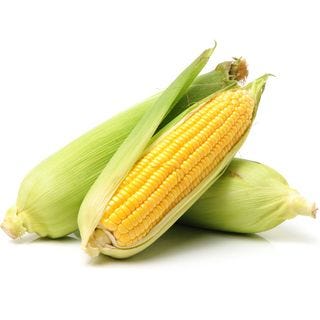
Corn
In addition to having resistant starch, corn also contains zeaxanthin and lutein—phytonutrients that keep eyes healthy and protect against macular degeneration. Ansel likes cooking corn whole on the cob and slicing off to add to risotto for a light but filling summer dish. To get an extra resistant starch bump, cool corn and add to black bean salad with tomatoes and a lime vinaigrette.
In addition to having resistant starch, corn also contains zeaxanthin and lutein—phytonutrients that keep eyes healthy and protect against macular degeneration. Ansel likes cooking corn whole on the cob and slicing off to add to risotto for a light but filling summer dish. To get an extra resistant starch bump, cool corn and add to black bean salad with tomatoes and a lime vinaigrette.
*Per large ear of corn: 123 cal, 2 g fat (0.5 g sat), 27 g carbs, 9 g sugar, 18 mg sodium, 3 g fiber, 5 g protein
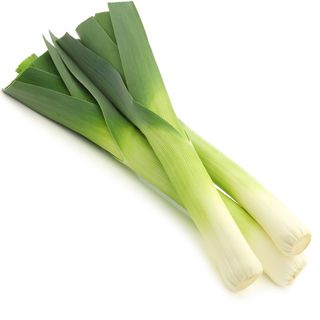
Leeks
Another great source of the colon-protecting prebiotic inulin, leeks have also been shown to potentially help prevent breast, stomach, and gastric cancer, says Ansel—plus one cup cooked has just 32 calories. Don’t have a clue how to cook them? Keep it simple: Poach leeks with thyme and serve with balsamic vinaigrette as an alternative to a leafy green salad.
Another great source of the colon-protecting prebiotic inulin, leeks have also been shown to potentially help prevent breast, stomach, and gastric cancer, says Ansel—plus one cup cooked has just 32 calories. Don’t have a clue how to cook them? Keep it simple: Poach leeks with thyme and serve with balsamic vinaigrette as an alternative to a leafy green salad.
*Per leek (raw): 54 cal, 0.3 g fat (0 g sat), 13 g carbs, 3 g sugar, 18 mg sodium, 2 g fiber, 1 g protein
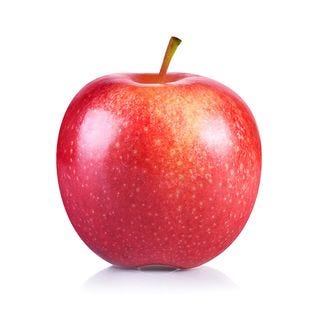
Apples
Apples are rich in the prebiotic pectin, which Ansel says improves an overall healthy gut by supporting a diversity of healthy bacteria. Apples can also help keep you slim by filling you up thanks to their high fiber and water counts; one often-cited study found that women who ate three apples a day lost 2.6 pounds in 12 weeks without changing anything else about their diets.
*Per large apple: 116 cal, 0.4 g fat (0 g sat), 31 g carbs, 23 g sugar, 2 mg sodium, 5 g fiber, 0.6 g proteins

Δεν υπάρχουν σχόλια:
Δημοσίευση σχολίου